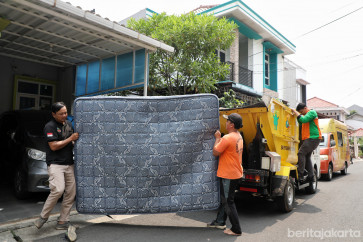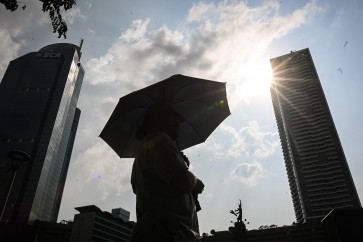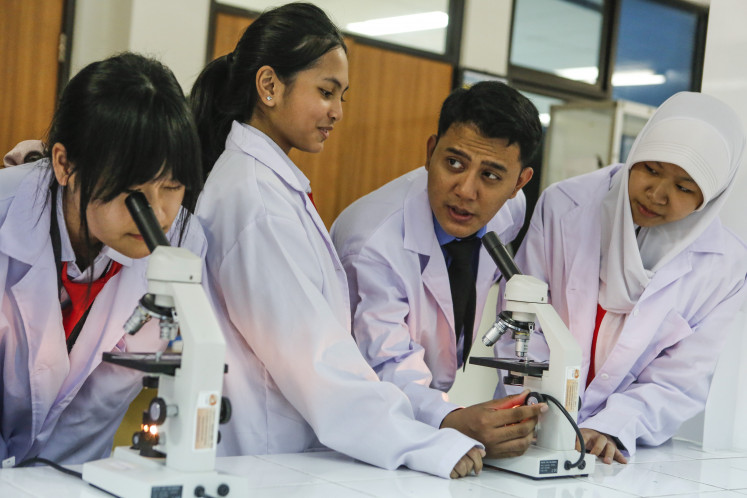Popular Reads
Top Results
Can't find what you're looking for?
View all search resultsPopular Reads
Top Results
Can't find what you're looking for?
View all search resultsIndustry needs strict recycling regulations to reduce waste
For the country to reduce waste, the central government needs to regulate manufacturers to ensure their unused products and packaging are disposed of thoughtfully, a public seminar heard Tuesday
Change text size
Gift Premium Articles
to Anyone
For the country to reduce waste, the central government needs to regulate manufacturers to ensure their unused products and packaging are disposed of thoughtfully, a public seminar heard Tuesday.
"The government must first make recycling compulsory," said Gianmarco Cortivo, a consultant from the Association of Italian Plastics and Rubber Processing Machinery and Moulds Manufacturers (Assocomaplast).
"If one uses plastic packaging and makes money from it, one must pay the recycling fee."
Cortivo was a speaker at the seminar on plastic recycling technology.
He said Italian manufacturers took 15 years to completely understand the advantages and systems of recycling despite prevailing regulations carrying penalties for violators of imprisonment and fines.
"Now, everybody's willing to pay recycling fees," he told The Jakarta Post on the sidelines of the seminar.
Plastic waste recycling by manufacturers was made compulsory in Italy in 1991.
In 1997, recycling consortia were established specializing in the different types of waste material: steel, aluminum, wood, paper, glass and plastics.
Plastic and packaging producers, companies using plastic packaging, and recycling companies pay the consortium a recycling fee. The consortium collects, sorts, transports and recycles the waste.
"It might take us one generation to get to where Italy and other countries, such as Japan and Singapore, are in terms of recycling," Indonesia Solid Waste Association chairwoman told the Post.
"However, at least now we have the legal basis for waste management."
Indonesia enacted a law on waste management in May this year. The law, however, failed to include sanctions against manufacturers neglecting to implement proper waste management systems.
"We hope that there will be more detailed points in following regulations on the issue," Sri said.
Sri said the regulation should not only include punishment for violators, but should also reward compliant companies and households.
The State Ministry for the Environment is still discussing the 2008 law.
"I hope it will be completed by May next year," Sri said.
The discussions should involve the related businesspeople as well as other state institutions, including the trade, industry and manpower ministries, Sri added.
"We must realize that waste management does not only concern the environment ministry. It also relates to business permit issuance and the welfare of trash pickers."
According to Sri, 10 percent of the total 6,000 tons of waste produced in Jakarta each day is plastic.
And according to Cortivo, 40 to 42 percent of the world's 245 million-ton daily production of plastic is used as packaging. Every day, some 10 percent of that packaging is thrown away, he added.
"Currently, some businesses are showing some concern for the waste issue through their corporate social responsibility (CSR) policies, but it is important to shift to a compulsory system of extended producer responsibility," Sri said.
The seminar Tuesday, held by the Italian Trade Commission's Jakarta branch and Assocomaplast, is followed by a Plastic and Rubber Indonesia exhibition at the Jakarta International Expo, Kemayoran, Central Jakarta, from Dec. 3 to 6.










